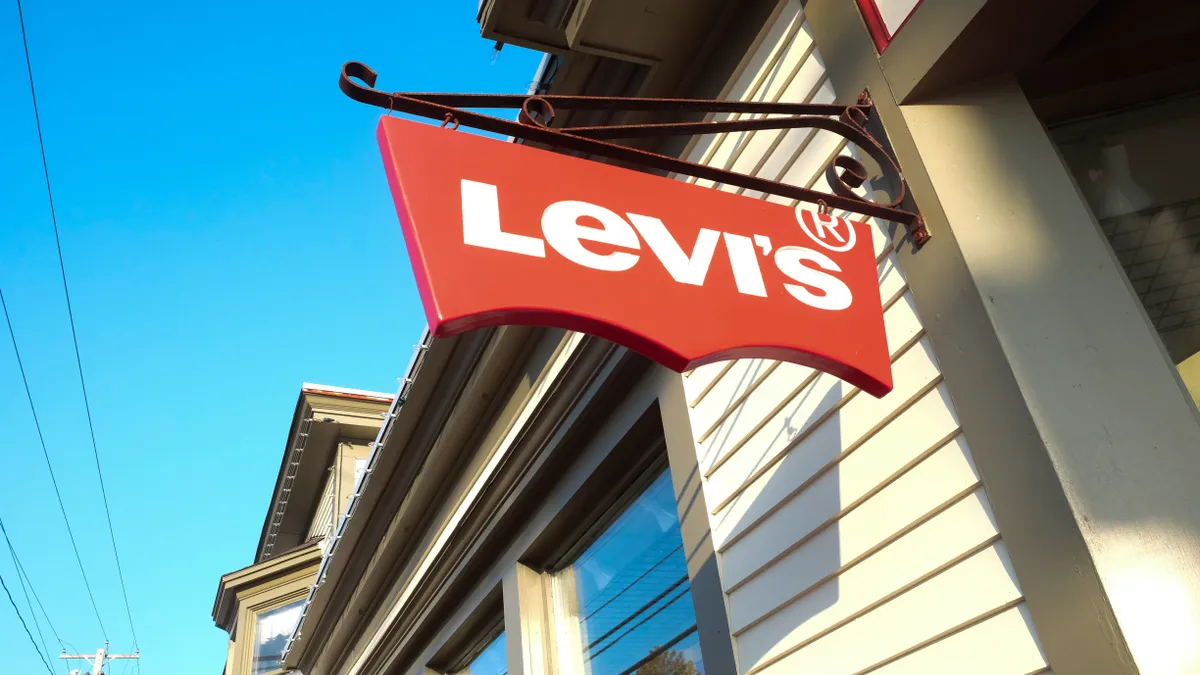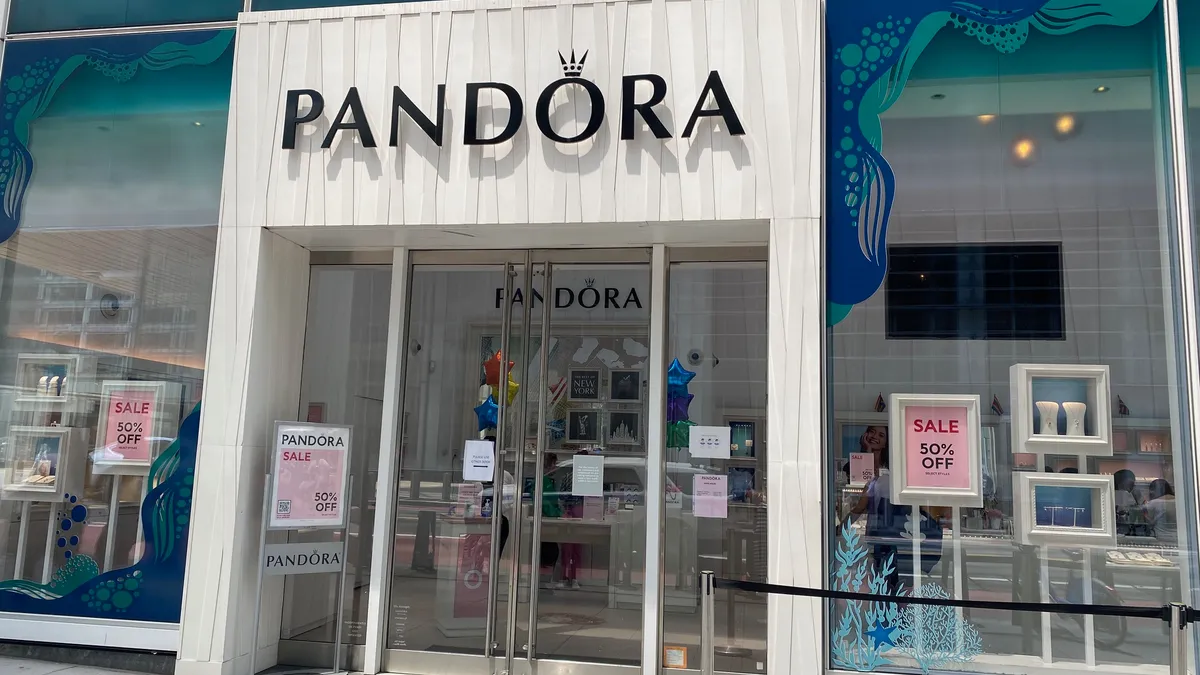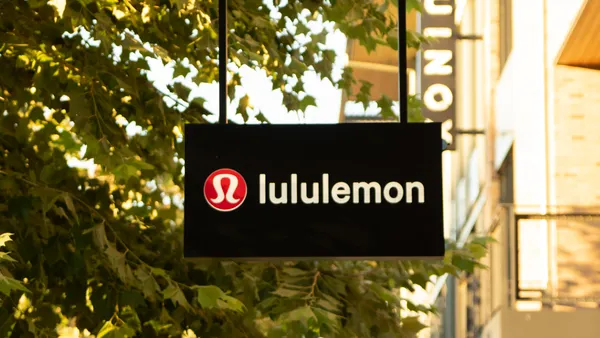"Talented experts, a beginner's mind and a long-term orientation."
Those arguably have been Amazon's key tools in its disruption of retail for two decades now, but when Amazon CEO Jeff Bezos said those words on Tuesday, he was talking about, of all things, healthcare.
Healthcare represents about a fifth of the U.S. economy — a market snarled with exponentially rising costs, obtuse policy and inadequate solutions that have mostly evaded the best efforts of policymakers for decades. That includes the sweeping reforms brought on by President Barack Obama (and dismantled in part by recently enacted tax reform under President Trump).
"The ballooning costs of healthcare act as a hungry tapeworm on the American economy," said Warren Buffett, Bezos's partner in a new effort — an independent company "free from profit-making incentives and constraints" being formed by Buffet's Berkshire Hathaway, Amazon and JPMorgan Chase. "We share the belief that putting our collective resources behind the country's best talent can, in time, check the rise in health costs while concurrently enhancing patient satisfaction and outcomes."
It's a tall order, but even the tentative, vague outline of a plan put forth roiled retail and healthcare players. Shares of CVS Health, whose own ambitions led to its $69 billion purchase last month of health insurer Aetna, plummeted on the news, along with those of insurers UnitedHealth Group and Anthem.
But Bezos doesn't shy away from tall orders. Furthermore, Amazon puts its focus where Americans put their money, and Americans put a lot of their money into healthcare. U.S. health care spending rose 4.3% in 2016 to $3.3 trillion, or $10,348 per person, according to the U.S government. "Amazon wants to be part of everyone's daily expenditures," Matt Sargent, senior vice president of retail for consulting firm Magid told Retail Dive. "Grocery is the current focus of their attention, but healthcare spending is another very large pocket of spending that Amazon has its eye on."
It's early days — Bezos and his cohorts emphasized that on Tuesday — but the alliance has "tremendous potential," according to Maulik Bhagat, managing director in the healthcare practice of global consultancy AArete, which specializes in data-informed performance improvement.
"At 1.1 million employees and growing, they are already a decent sized 'health plan' in themselves and could essentially operate as its own payer entity or possibly an 'Accountable Care Organization' for their employees," Bhagat told Retail Dive in an email. "At a minimum it gives them more power in holding their existing payer vendors more accountable for health and cost outcomes for their employees. It gives them a chance to deliver better healthcare and reduced costs and change the market dynamics in the commercial healthcare space."
All three firms also have customers, who could conceivably become among the those eventually privy to their new dynamics, he also said.
"Expand this to the number of captive and loyal customers these firms collectively touch and you suddenly have the possibility of this becoming a huge disrupting development," according to Bhagat.
The healthcare industry isn't holding its breath
While Tuesday's announcement made waves throughout the business world, the healthcare industry greeted the news with a collective cold shoulder. Amazon does have a history of disruption, and with its new partners, it also has plenty of resources. But healthy skepticism is warranted here for a couple good reasons.
There are no details yet. The 400-word press release gave virtually no information about the company beyond a vague goal of improving employees' health while keeping down costs and achieving this through technology. That leaves a lot of gaps to be filled, to say the least.
We've heard this before. High employer healthcare costs is an increasing problem, but hardly a new one. A string of companies, some high profile, have declared their intention to take on the problem, but with little to show for it. It's possible Amazon, JP Morgan and Berkshire have some new ideas, or will finally find a way to make a difference, but without the aforementioned details, it is certainly not an easy assumption.
"We need to go 'all in' with a Marshall Plan-type program. Piecemeal tweaking around the edges may just create more distortions and inequities," said Nancy Fabozzi, transformational health principal analyst with Frost & Sullivan. Because the problem Amazon, et al are attempting to solve, is an extremely difficult one
Recent analysis from the Health Care Cost Institute found that healthcare spending per person is growing at a faster rate than previous years despite use of services staying flat or declining. That means the problem is in the cost of care itself more than patient behavior. Rising healthcare costs have been the bane of politicians, CEOs and families across the country. Policies and general concepts for reining in costs are out there, but even where there is agreement, what works on paper does not necessarily work in practice. Whatever can be accomplished will need buy-in from providers, payers and patients, all of whom have different priorities.
Doing what Walmart hasn't — and won't
Retailers have been here before, and it was another retail giant — Walmart — who tried to leverage its scale to deliver healthcare to Americans.
It was just a few years ago that Walmart declared its intent to expand access and simplify healthcare options for customers through the "Healthcare Begins Here" program, developed with PwC. The retail giant still provides pharmacy services, health clinics, durable medical equipment, immunizations and wellness days, where customers can have their blood pressure taken. But none of those efforts garnered the headlines that Amazon did on Tuesday.
"Walmart pioneered this with their $4 generic drugs. But they stopped short by not completely addressing issues the government and private businesses couldn't solve. Where Walmart left off, Amazon is picking up."

Spencer Millerberg
CEO at marketplace analytics firm One Click Retail
"Walmart pioneered this with their $4 generic drugs," Spencer Millerberg, CEO at marketplace analytics firm One Click Retail, told Retail Dive in an email. "But they stopped short by not completely addressing issues the government and private businesses couldn't solve. Where Walmart left off, Amazon is picking up."
Expectations are running high for Amazon to succeed where Walmart hasn't, perhaps because Walmart's approach, in healthcare, as in retail, is aligned with an existing system while Amazon is all about disruption. It's a consequence of not only Bezos's mindset but also the patience of Amazon's investors, who consistently demonstrate a high level of comfort with the long view.
"Walmart has established business models that are viable in their current state and risks upsetting the states of these businesses if the fundamentals of these businesses are altered," Sargent said. "Take grocery — Walmart has brought about change and is definitely trying new things, but in ways that complement the existing business."
"Amazon on the other hand can 'afford' to turn both grocery and healthcare upside down without substantial risk to their current business model," he said. "This core difference in business models leads me to think that Walmart's place is not to reinvent healthcare but refine its business model over time to adapt to these changes within specific business units."
To be fair, Walmart's effort has been stymied by realities, something that Amazon has yet to confront. In practice, its healthcare delivery was cumbersome and unprofitable, according to John Sarich, vice president of strategy at VUE Software, a firm that specializes in innovating and automating business processes for the insurance industry. Those are two things that are against the retail giant's core nature.
"Walmart took a run at being a Medicare advantage vendor as well as selling Part D (pharmacy)," Sarich told Retail Dive in an email. "What started out as a way to make money ended up with tying people up in explaining plans and benefits with very little revenue coming into Walmart. It was never a moneymaker for Walmart."
Walmart's "always low prices" mantra should resonate in a country where healthcare costs have frustrated payers and consumers alike. A singular focus on the high costs of healthcare, however, is simply not enough for the kind of revolution that some observers — including, apparently, Amazon and its partners — believe are necessary to improve the healthcare system.
"The train for Walmart in healthcare has pretty much left the station. Amazon stands for convenience. Walmart stands for everyday low prices. The competitive advantage in healthcare and value to consumers lies in applying technology to make healthcare more accessible.

Erich Joachimsthaler
Founder and CEO of brand strategy firm Vivaldi
"The train for Walmart in healthcare has pretty much left the station," Erich Joachimsthaler, founder and CEO of brand strategy firm Vivaldi, told Retail Dive in an email. "Amazon stands for convenience. Walmart stands for everyday low prices. The competitive advantage in healthcare and value to consumers lies in applying technology to make healthcare more accessible. It will also reduce costs, but healthcare is not a lowest cost product. Would you go to the cheapest dentist? Or the cheapest therapist in town?"
It's all about that interface
Technology, many observers say, will be the crux of Amazon's effort in healthcare, as it has been in all aspects of its sprawling empire. Amazon employs data, not just to drive down prices or improve its distribution, but also to solve consumers' problems. It's the premise behind the e-commerce giant's Prime program and corollary efforts like Prime pantry: Algorithms based on search and buying patterns help consumers find what they need or want, and the goods are delivered swiftly, sometimes that day, and sometimes for free.
Walmart has long used data, too, to bring efficiencies to its supply chain. While that has helped render it the largest, most productive distributor of consumer goods in the world, it hasn't necessarily brought it the kinds of insights that Amazon seeks — and finds — and that would be most applicable to tackling healthcare.
"Walmart and Amazon have both invested heavily in specific infrastructures that they leverage with their consumer base," Magid's Sargent said. "Walmart's investment is in its vast physical stores, while Amazon's investment is in its core technological infrastructure, including algorithms that allow you and I to search for millions of products. Amazon's infrastructure best addresses the pain points of the current healthcare problems (the need for technological streamlining). Walmart's infrastructure doesn't align with this primary need."
Are drugstores left behind?
Of course Walmart isn't the only retailer embarking on healthcare delivery. Walgreens, Rite Aid and, most prominently, CVS Health, have expanded their pharmacy distribution operations and their consumer-facing medical services in recent years. After forgoing tobacco sales in 2014 in light of its healthcare ambitions, CVS rebranded itself from CVS Caremark Corp. to CVS Health, putting healthcare delivery goals front and center. And it capped off the effort with the purchase last month of health insurer Aetna for $69 billion.
While their merger must still be approved by regulators, Aetna and CVS say they aim to deliver a "personalized healthcare experience" by connecting Aetna's network of providers with consumer access through CVS Health. Technology is a linchpin for them too — a broader use of data and analytics, they say, they will create better patient outcomes at lower cost.
The Amazon-Berkshire Hathaway-Chase joint declaration may have thrown water on that. Indeed, the new venture could create "further competitive pressure on CVS, Walgreens and Pharmacy Benefit Managers," considering that they haven't faced such a challenge, according to Moody's Vice President Mickey Chadha. But at least CVS, while it suffered on Wall Street after Amazon's announcement, is in a position to stay in the game.
"Considering the regulatory burden around every aspect of healthcare, any new entrant in the space is at a huge disadvantage," Chadha said in an email to Retail Dive. "In light of today's announcement, the potential merger of CVS and Aetna is even more compelling, as a more coordinated approach to medical care is necessary to lower the overall healthcare costs for consumers."
Controlling costs is benefit No.1
The employer community largely looked upon the deal positively.
"My first reaction is that anytime companies with this type of profile are interested in fixing a problem like healthcare costs, it's good," Shandon Fowler, healthcare and HR tech consultant with Four8 Insights, told HR Dive. "It will force others to pay attention." Frank Easley, senior vice president with Aon's health and benefits division, echoed that sentiment. "We've always encouraged companies to take an active role" in managing their healthcare, he said.
The ever rising costs of healthcare remain a dominating narrative in the employee benefits space with no obvious solution. The real question for observers then, is: What's next?
This isn't the first time major U.S. employers have tested the increasingly fraught waters of more direct healthcare management. The Health Transformation Alliance boasted partnerships from Coca-Cola, Verizon and American Express.
But Amazon, Berkshire Hathaway and JPMorgan have name recognition, most notably Amazon for its reputation as a disruptor, Fowler said. To most observers, it's no surprise that big-name employers are now loudly demanding a space at the healthcare negotiation table.
"New entrants with fresh approaches like these may be just the prescription our ailing health care system needs. This industry is ripe for disruption and the collective resources of these three companies, emerging technologies and Amazon's customer obsession and supply chain savvy gives me optimism that they will pursue a consumer-focused model that will transcend the fragmented, provider-centric delivery system that we have today."

Brian Marcotte
CEO of the National Business Group on Health
For employers, Amazon's foray into healthcare — whatever it ends up looking like — may be one of the louder shots in their continued fight to corral an unruly healthcare system. Brian Marcotte, CEO of the National Business Group on Health, hopes all three companies can put their business experience to use.
"New entrants with fresh approaches like these may be just the prescription our ailing health care system needs," Marcotte said. "This industry is ripe for disruption and the collective resources of these three companies, emerging technologies and Amazon's customer obsession and supply chain savvy gives me optimism that they will pursue a consumer-focused model that will transcend the fragmented, provider-centric delivery system that we have today."
Will healthcare factor into HQ2?
As speculation runs rampant as to where Amazon will build a second headquarters, this new program could add a some new priorities to the company's shopping list, namely proximity to experts, academics, research institutions or existing providers.
Some of the finalists for Amazon's HQ2 have notable healthcare ties. Nashville is the site of headquarters for healthcare systems HCA, Community Health Systems (in nearby Franklin) and Ardent Health Services. Dallas is home to Tenet Healthcare, a system with more than 70 hospitals, and major insurer Anthem is headquartered in Indianapolis.
Some of the cities feature top medical research universities, like Harvard in Boston and Johns Hopkins in Washington D.C. The University of Pittsburgh Medical Center is a large integrated system that has put a focus on tech tools and working with the community as it builds up its workforce.
Amazon's cloud could be a linchpin
One of the few details spelled out in the release is that the initial focus will be on technology tools to provide employees with quality and cost data. Amazon's cloud could play a big role in that.
The industry has been grappling with how to integrate health data among disparate actors in healthcare's looming age of consumerism. Amazon is poised to assist in that department. Amazon Web Services (AWS), the company's cloud business, is a leader with 62% of the market share that enjoyed a 42% net sales growth in the third quarter of this year to $4.5 billion.
AWS combined with Alexa's brain in the cloud could be the glue to piece together data points. The company has already been exploring tools for healthcare for AWS customers. "Certainly healthcare is one of many sectors as part of Amazon Web Services that are important customers that we are focusing on and building tools for," Dave Fildes, Amazon's director of investor relations, said on a Q3 earnings call.
While still speculative, Amazon could leverage existing technology offerings to engage employees with healthcare purchasing decisions, which could fuel competition in the payer and provider markets with downward pressure on prices.
Alexa, recommend a doctor
An Alexa interface could allow plan enrollees to ask questions such as, "Is my doctor visit in network?" or "Does my HSA cover LASIK?" Engaging with voice-enabled assistants could cut costs by reducing call volume to healthcare organizations, Brad Ptasienski, a director in West Monroe's healthcare practice, told Healthcare Dive.
There are indications this is, indeed, part of the plan. Amazon had been hiring for a HIPAA Compliance Lead for Alexa. However, that futuristic vision "seems far out," David Vivero, CEO of the digital health start-up Amino CEO, told Healthcare Dive. Consumers only recently were able to buy movie tickets or order an Uber via Alexa.
"I'm not holding my breath for big changes," John Moore, managing partner at Chilmark Research, told Healthcare Dive. Instead, he expects incremental change are more likely over the next three to five years.
One thing is certain among the uncertainty, the industry is watching.
"Hospitals, clinicians, and health plans will want to closely monitor the new company, especially if it shows any signs to eventually expand efforts beyond the founders' employee base. The sophistication of these companies, their significant financial resources and their ability to disrupt established markets is clear."

Rob Lazerow
Managing Director of Research at Advisory Board
The announcement "puts the industry on alert," Vaughn Kauffman, U.S. health services and new entrants advisory leader at PwC, told Healthcare Dive.
"Hospitals, clinicians, and health plans will want to closely monitor the new company, especially if it shows any signs to eventually expand efforts beyond the founders' employee base," Rob Lazerow, managing director, research at Advisory Board, told Healthcare Dive in an email. "The sophistication of these companies, their significant financial resources and their ability to disrupt established markets is clear."
Beyond technology, is trust
Amazon's potential to succeed in revolutionizing healthcare for American consumers doesn't just lie in its employment of "talented experts, a beginner's mind and a long-term orientation" or even its technological prowess, however. The e-commerce giant also enjoys a level of trust that few other retailers do. And health and wellness is already a big part of its business, according to Spencer Millerberg, managing partner at One Click Retail.
An Amazon disruption of healthcare is a welcome focus for Americans who already trust Amazon with over $5 billion of their health and personal care purchases last year. More affordable and simple to use healthcare is a natural extension of that trust."

Spencer Millerberg
Managing Partner at One Click Retail
"An Amazon disruption of healthcare is a welcome focus for Americans who already trust Amazon with over $5 billion of their health and personal care purchases last year, and nutrition and wellness is growing a massive 44% on Amazon in 2017," he said. "Clearly these consumers have voted with their wallets that they trust Amazon with their health product needs. More affordable and simple to use healthcare is a natural extension of that trust."
That stems in part from Bezos's ethos. Although he's among the richest people in the world, when it comes to disruption, Bezos is interested in "disappearing" the margin, rather than snatching it for himself, according to Bryan Gildenberg, chief knowledge officer of Kantar Consulting.
"Imagine him working to build a health insurance business where he doesn't want your margin for himself but just wants to get rid of it altogether," Gildenberg told Retail Dive in an email. "Figuring out how to rebuild not just the customer interface but the entire economic construction of the U.S. health insurance industry could lead to massive cost savings, and a fundamental shift in how insurance works."
That's been a tantalizing, if confounding, idea for companies, (even those that, if they're large enough, self-insure) because healthcare costs continue to spiral. Amazon and its partners have set out to find a Holy Grail, to rein in a runaway system. If they succeed, Amazon may have yet another invaluable service to offer businesses, and perhaps even individuals.
Could Amazon's customers some day add health insurance to their list of Prime perks, alongside streaming video, free two-day delivery and all the rest? Maybe, said IHL Group Principal Analyst Greg Buzek.
"But I think the most logical step would be more for this to lead to a group prescription option for Prime users," he said. "Amazon gets the same great data on consumers but without the escalating costs from potential hospitalization. If limited to prescriptions, this can be a really compelling offer with the potential to be the single largest drug store chain embedded in it."
Even that limited benefit would be radical. And for rivals in the retail space, it would be that much more competition from Amazon, that much more stickiness in its Prime membership, that many more reasons consumers have to go to Amazon for goods and services.
As Bezos himself said, what Amazon's healthcare project ultimately looks like remains to be seen, and it will be years before it takes shape. But it may be inevitable that healthcare delivery will some day be a feature of Amazon's always-evolving consumer sphere.
"Amazon is about being so much more than the company that sells you your toothpaste or server space or streaming videos," Danny Silverman, CMO at e-commerce solutions and research firm Clavis Insight, told Retail Dive in an email. "They are playing for the entire ecosystem that surrounds shoppers and consumers, and in doing so, must have a stake in every key area of that ecosystem. With Echo, Amazon has captured the home. With healthcare, they capture the next, most valuable layer of the ecosystem — the system that keeps us well and healthy.
"Selling services isn't new to Amazon," said Silverman. "Something like 'Prime Health' is entirely viable. It would be just another one to add to the ecosystem."





















